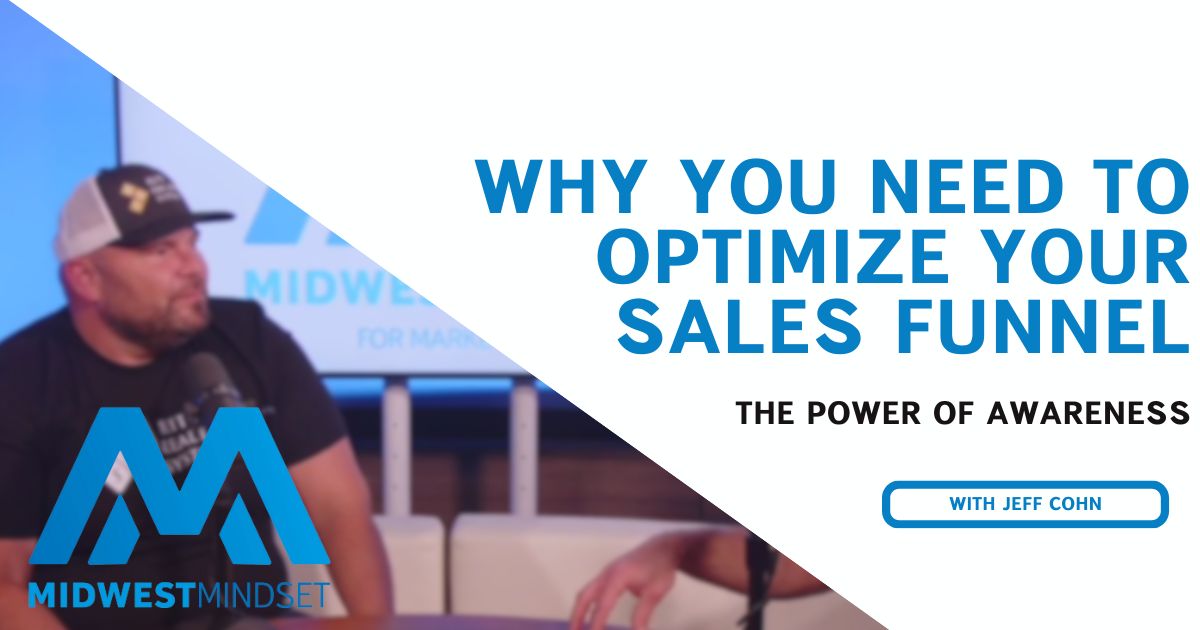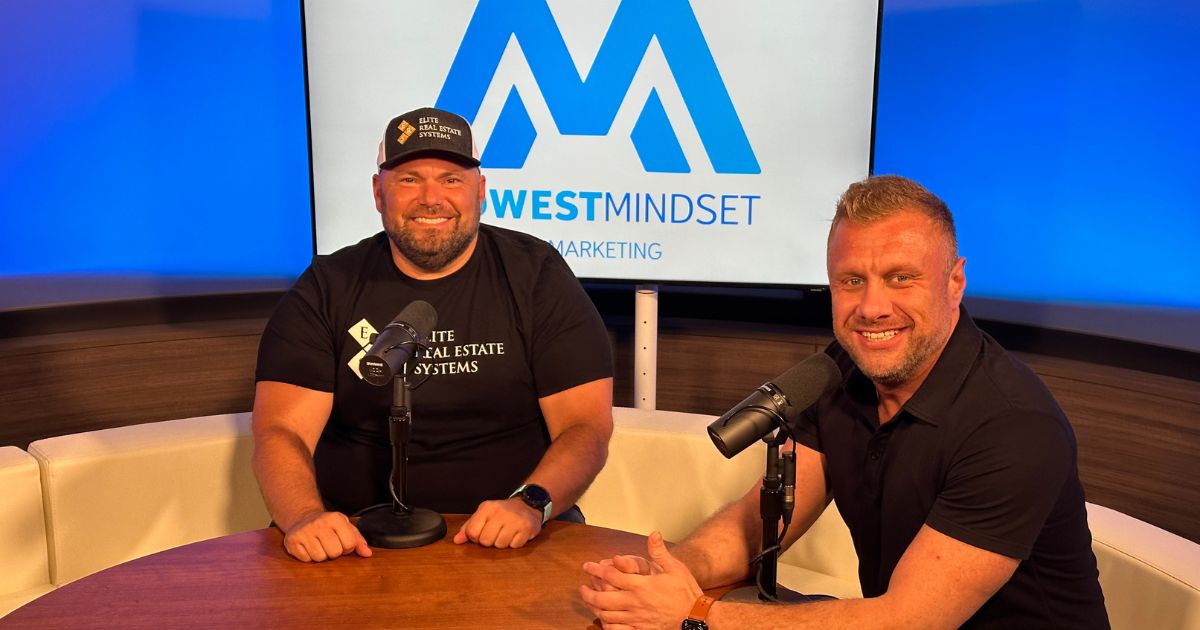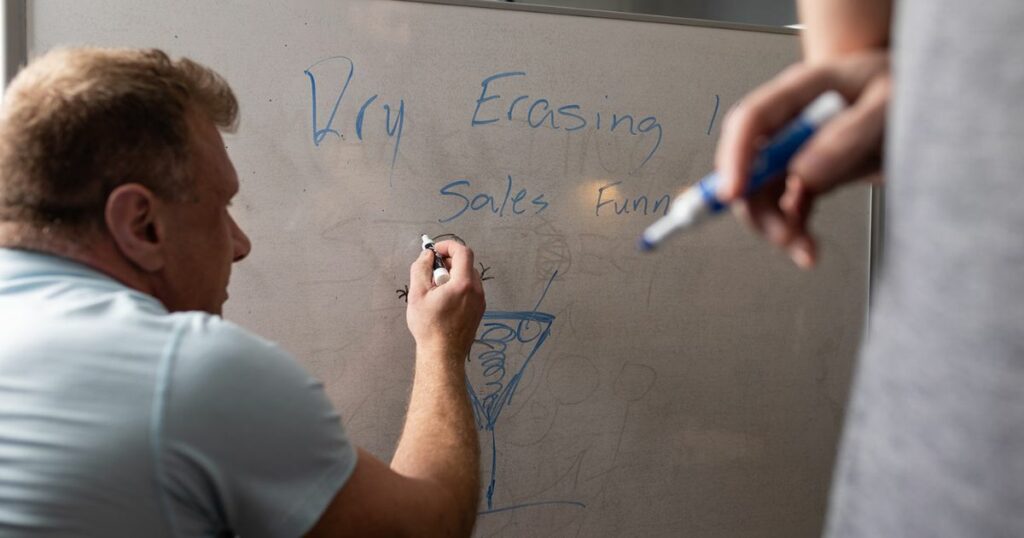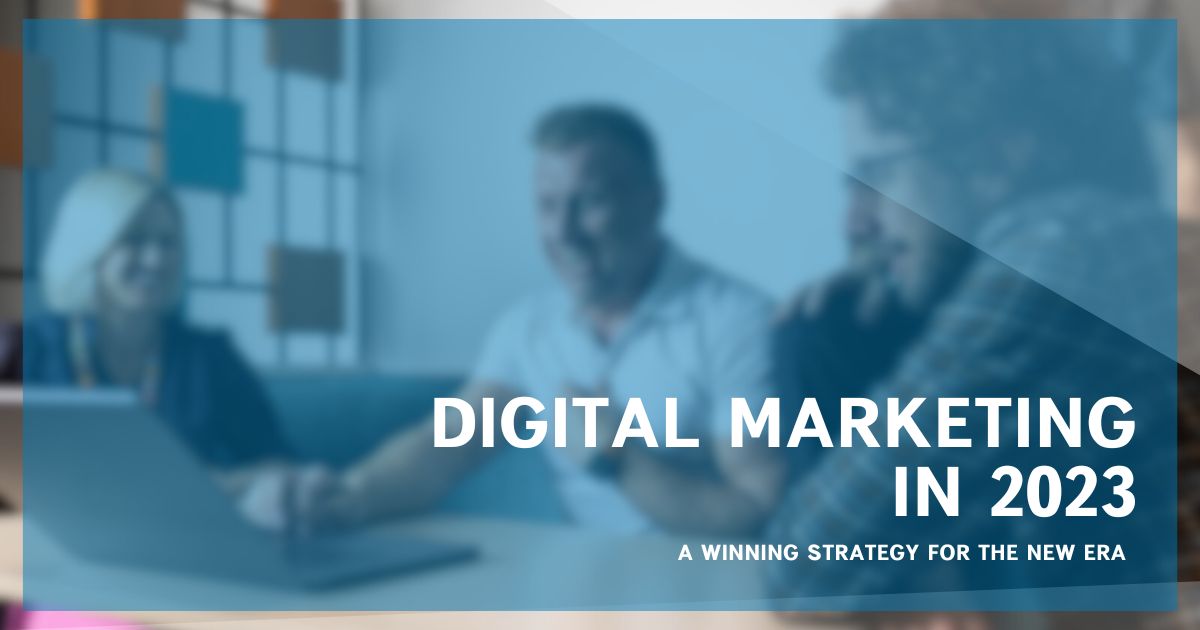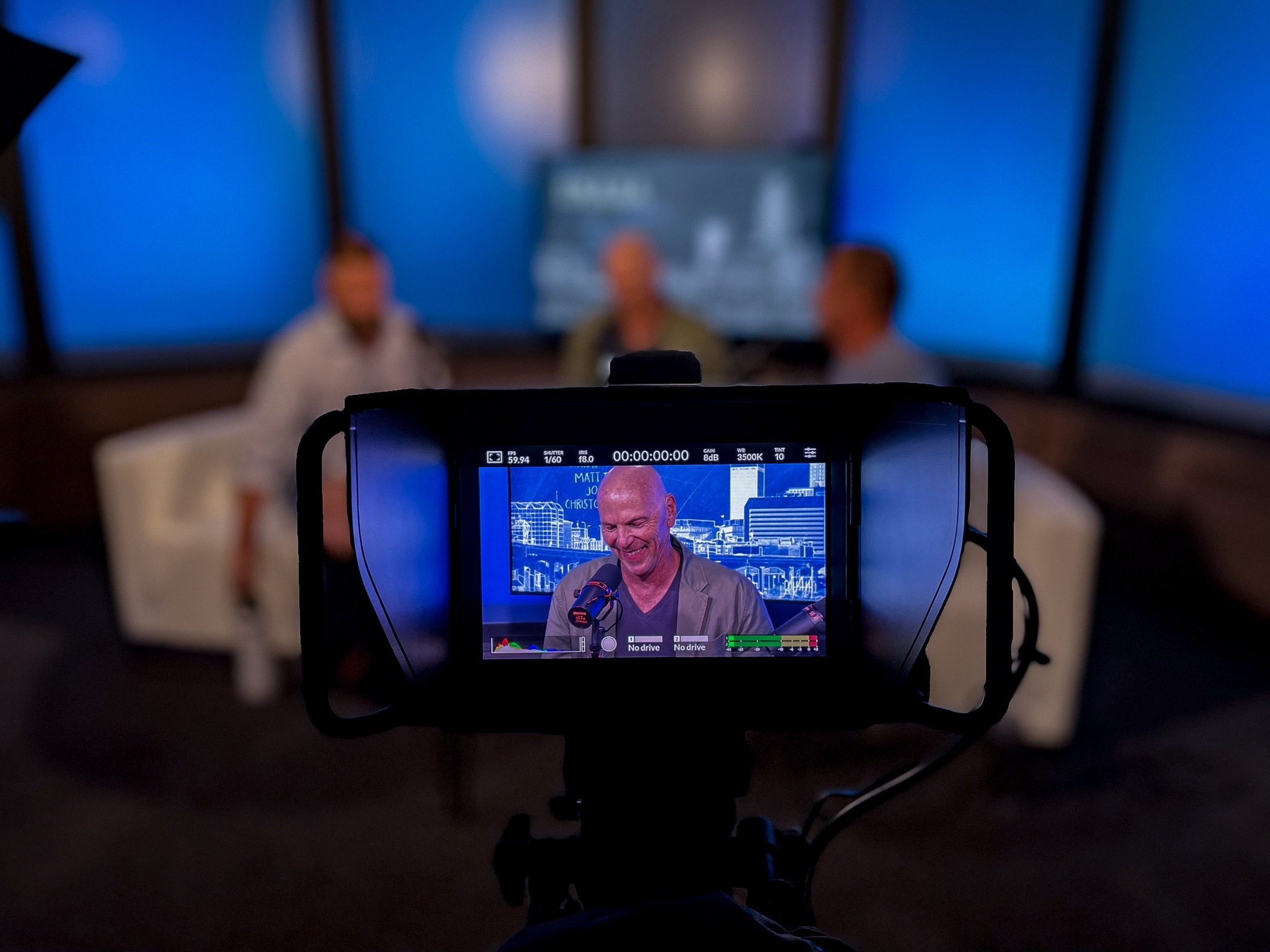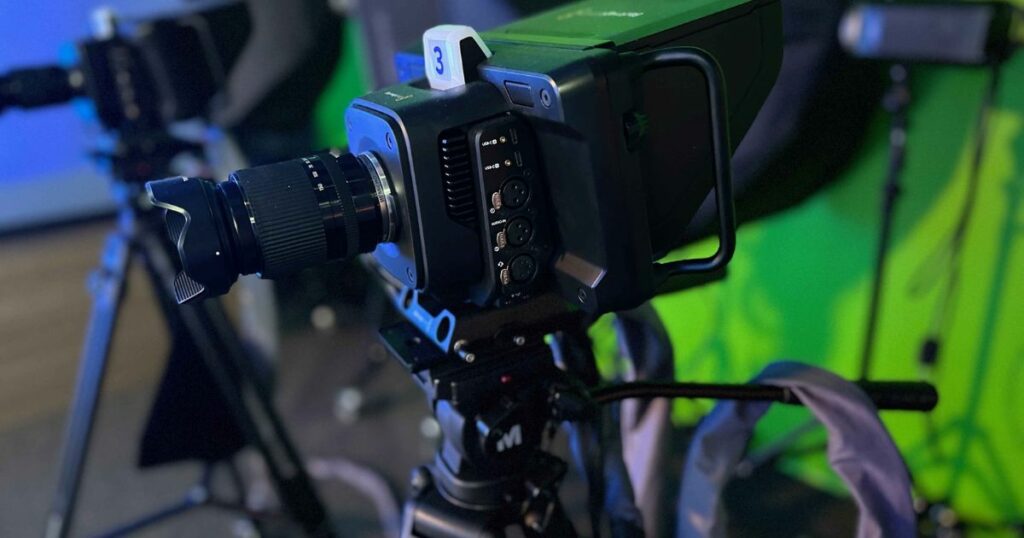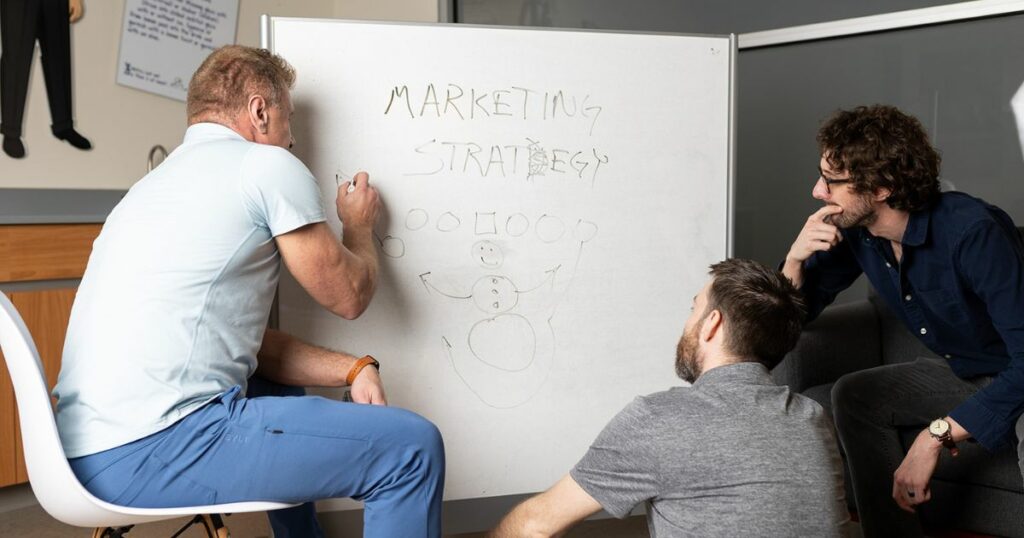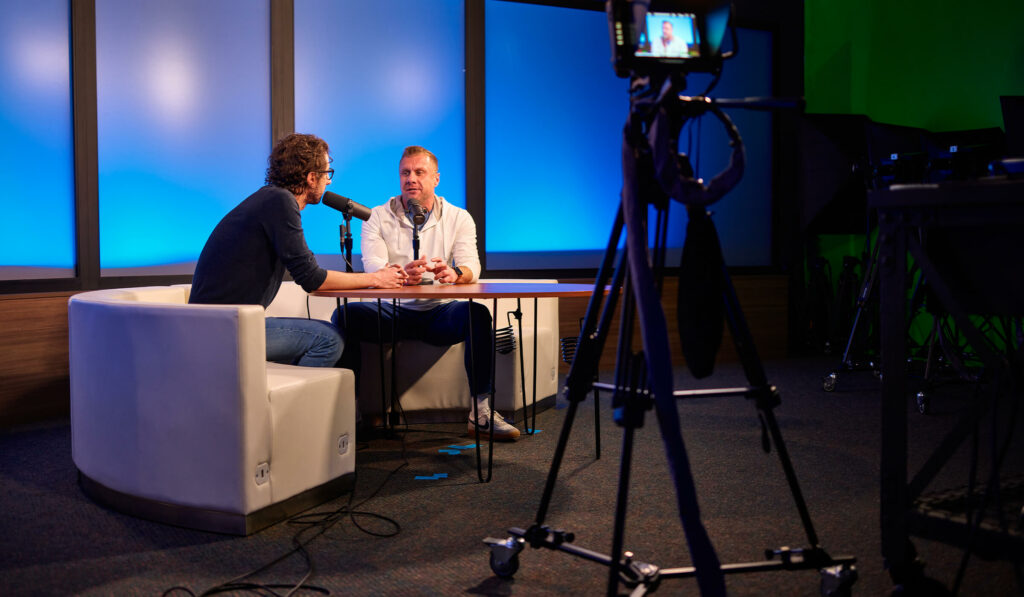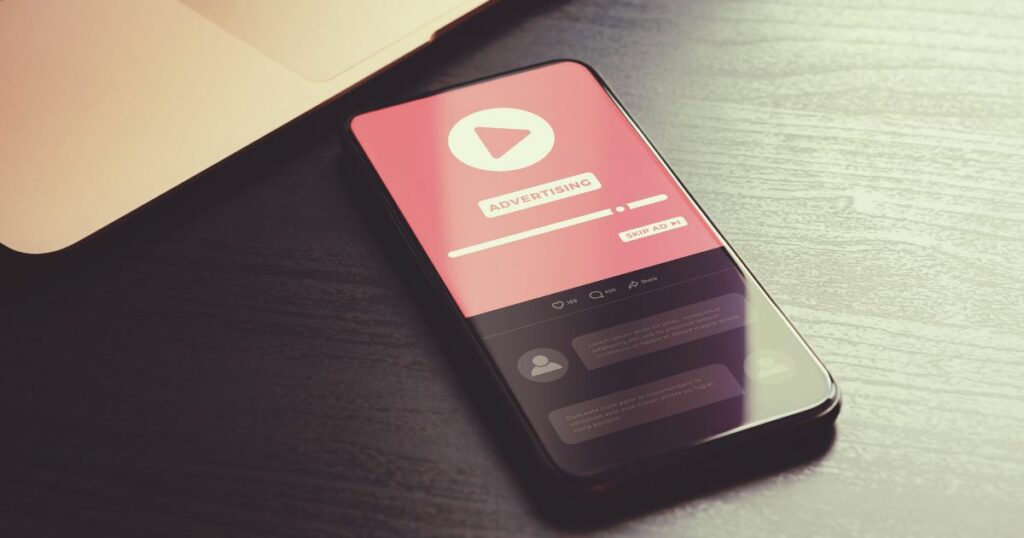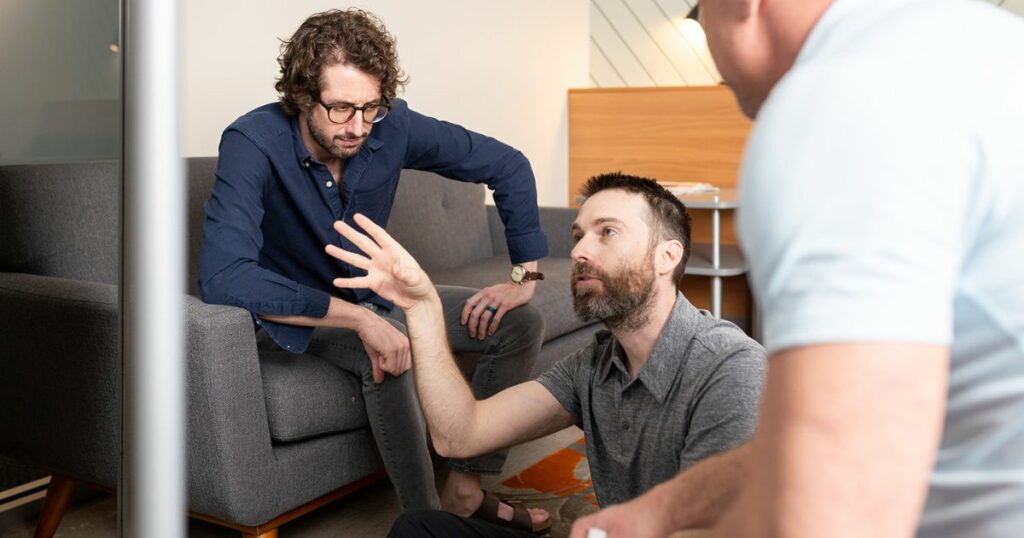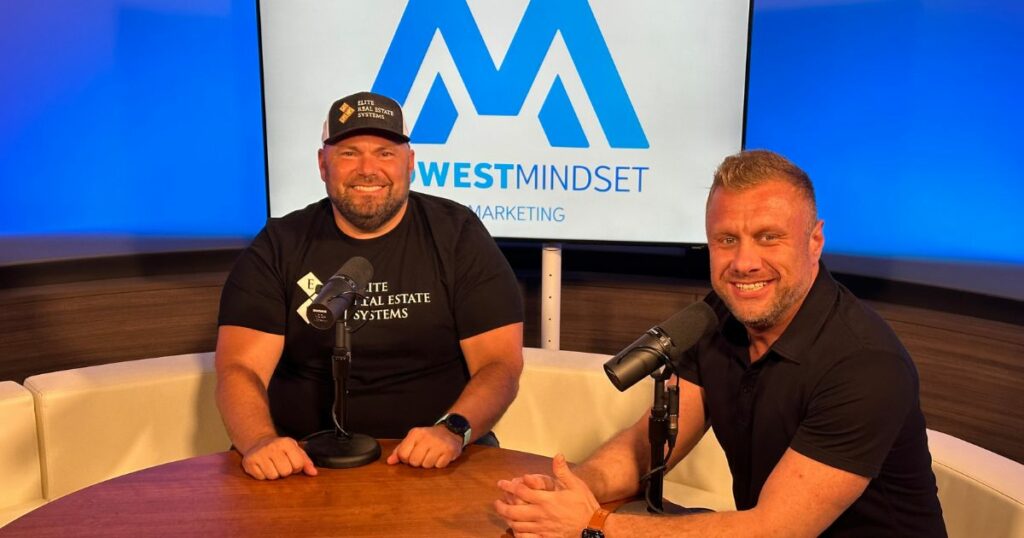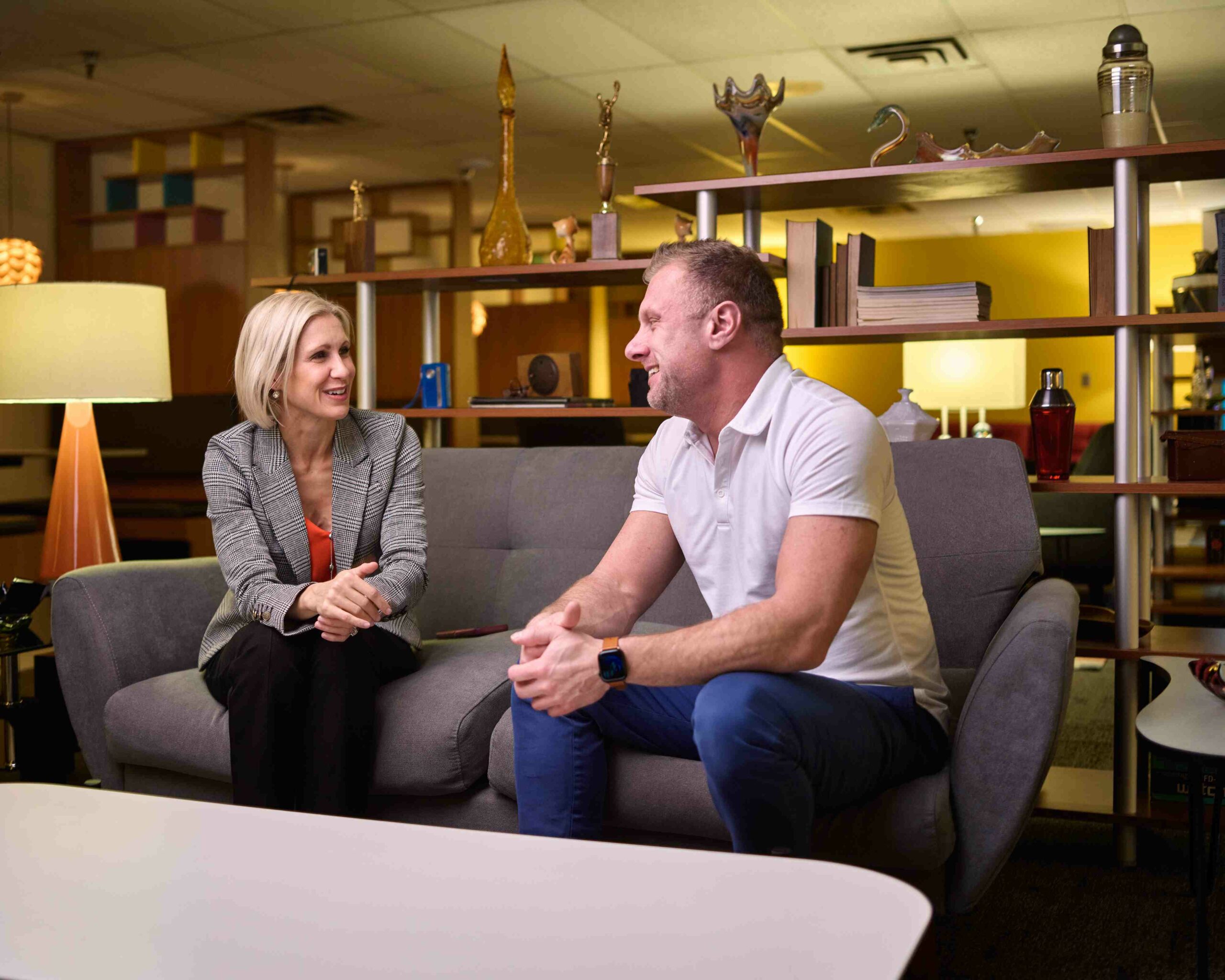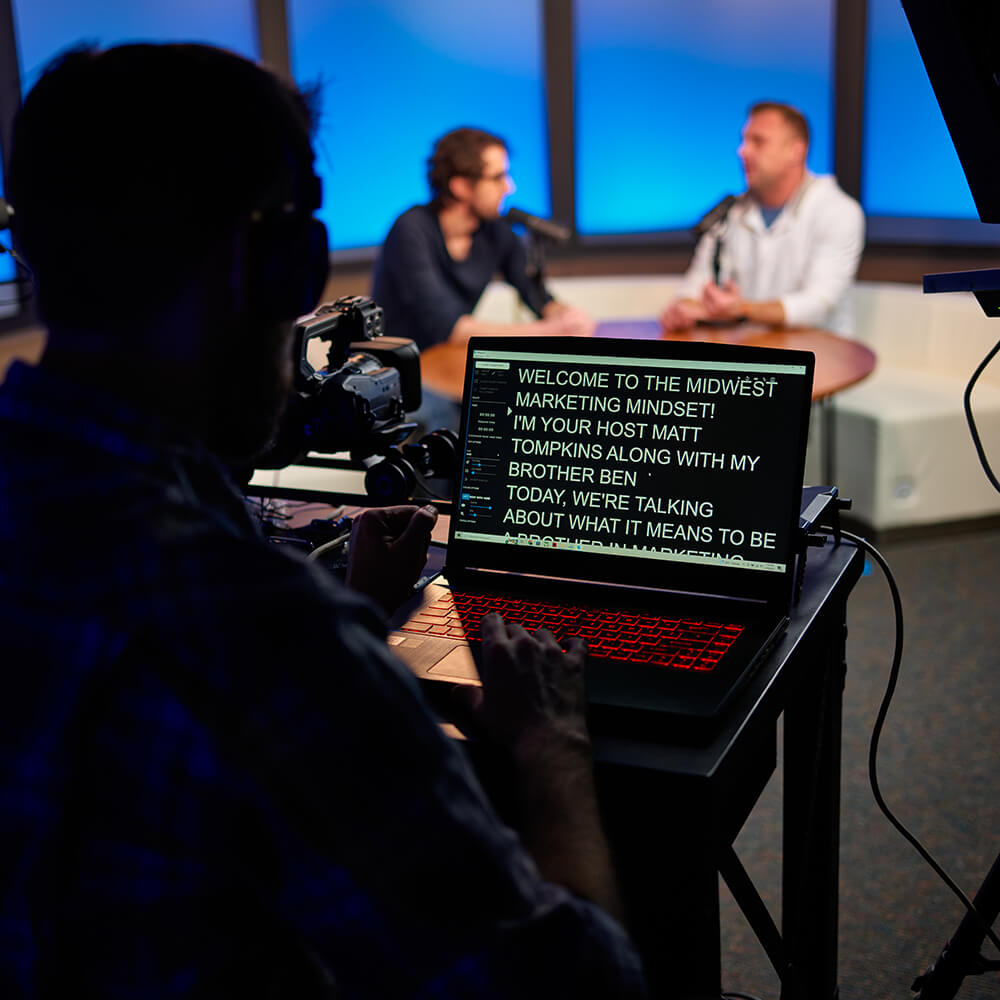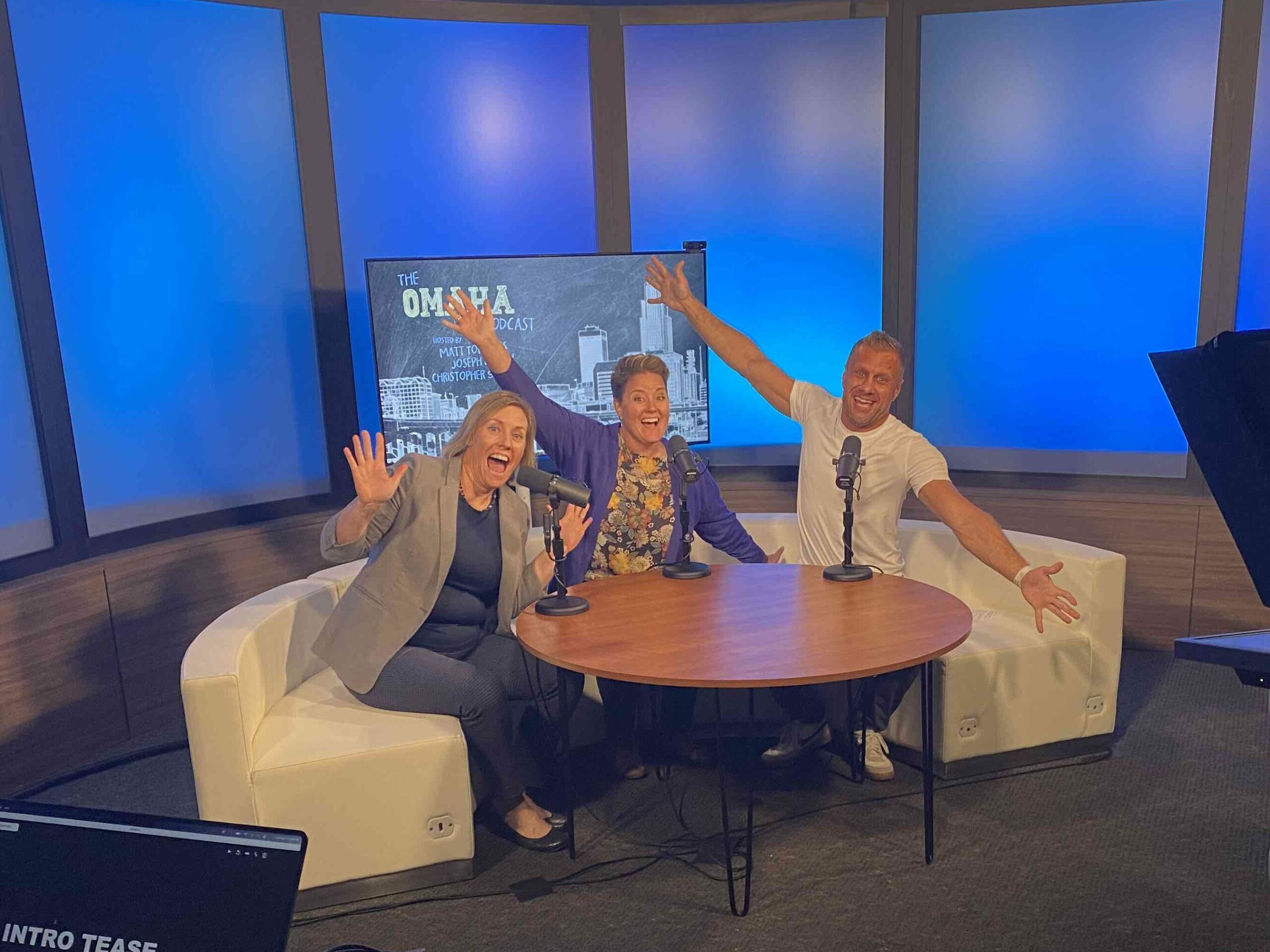Sales Funnel Transcript
Season 2 Episode 12
This is a written Transcription for the episode: A Sales Funnel to Build a Billion Dollar Business
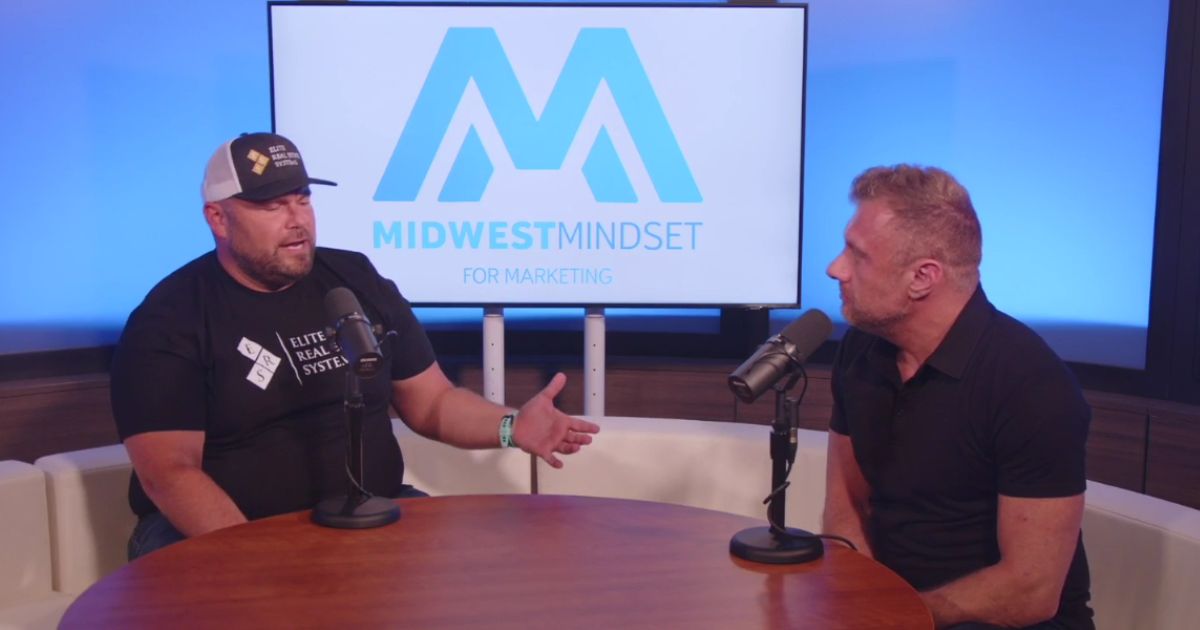
Full Written Transcript of The Episode
MATT: How do you build $1 billion business? Believe it or not, it all starts with something as small as a funnel. What is a sales funnel and just how can you implement a sales funnel that will scale your business beyond anything you thought possible? Well, today we find out.
On this episode, we’re joined by Jeff Cone of Coaching Elite Real Estate and host of the Team Building podcast. Not only is Jeff built $1 billion idea into a success story today, he’s going to show us how he did it. He started it all by starting a podcast and building a sales funnel around it. Hello and welcome back to Midwest Mindset, the podcast that gives you the small business owner, the big agency Secrets to Marketing. I’m Matt Tompkins of two Brothers Creative, where we believe every business deserves affordable and effective marketing that produces real results. Now, before we get started today, I would like to personally invite you to the team building Summit. It’s going on May 31st through June 2nd, right here in downtown Omaha.
The link is in the show notes and their website is the team building summit.com. We’re going to hear Jeff talk more about this in detail on the episode. But it’s a two day summit on building successful teams. Yes, it has a focus on real estate, but this summit really applies to any small business owner.
MATT: I’m going to be speaking at the event on content marketing for today’s business. Our friend Gwen Aspen of Anawim. She’s going to be speaking there as well, along with several other local Omaha business entrepreneurs. And we’ll be setting up to record podcasts at our booth. We’ll be giving away several marketing prize packs valued at over $1,500 each, and the tickets are very affordable. A few are available now. Get your tickets in the link in the show notes and we’ll see you there. All right, let’s talk funnels. Sales funnels.
So you’d be surprised when you ask a business owner, what’s your sales funnel? The answers that you get, I remember asked this was recently. I said, So tell me about your sales funnel. What do you what do you do? What do you have? And they said, well, we have we do giveaways. You know, we have like free little car key holder things and some mugs and koozies. And then we get their email and we put them in and then we send them an email. And that’s the extent of it. Jeff You are a master of sales funnels. The funnel you’ve created with yours is how you should do it. And so what is a sales funnel? Let’s just start there. Yeah. So I think.
JEFF: Each business is going to have a different funnel depending on what they’re trying to accomplish. And so you really have to work backwards and ask yourself, what’s your goal? What do you want to accomplish? And then what’s the best way to get there. So we started this with our real estate company. As an individual real estate agent, I became obsessed with how am I going to find my next transaction? I got licensed when I was 22, 23 years old back in 2006 and had no idea where my first transaction was going to come from. I lived in a one bedroom apartment and was teaching people or helping people buy and sell residential real estate, which is pretty scary. And so the number one thing I did was went around and asked the top real estate agents in Nebraska what they would suggest I did to find my next client. And everyone said, Work your sphere of influence. Well, my sphere of influence was still in college. They weren’t buying and selling real estate. So then I went to their parents and said, Hey, look what I can offer. Can I practice my listing presentation? Can I practice my buyer presentation? And I tried to start perfecting the process of finding transactions.
JEFF: And this is back in zero six and everyone remembers 070809. The market started to go bad. And so you started having lots of inventory. I think we got up to 9000 houses in lots on the market, which is nine months of inventory.
Right now, there’s less than about two months of inventory in the Omaha metro. So I quickly knew that to be successful in real estate, I was going to need to define a funnel for residential real estate. Now of course, we apply this to our coaching organization, Elite Real Estate System. So for me, the funnel was me working the job of looking for transactions, placing those transactions in a client relationship management platform, and then having a process in which I would follow up with a lead opportunity depending upon how far out they told me in my first engagement with them on a phone call, email or text, how far out they’d be buying or selling a home. And so we’ve mastered the lead conversion process depending upon what their time frame looks like.
MATT: And your Team Builder podcast is a funnel that you’ve called it, the tip of the spear. And that is why, you know, podcasts in general are a really effective tool for any business because it is a I mean, really relatively inexpensive if not free way to create that awareness. And that’s really where you’re starting, right? I mean, your funnel can look like anything. It could be My funnel is I go to networking groups every week and that’s how I get the awareness out there. And you want to take people from awareness to interest or desire to making a decision and then actually taking the action that you want, which is selling them your product or service 100%.
JEFF: So my evolution was I kind of played with the funnel concept as an individual agent. Then we launched this big real estate team and then I exited selling real estate ten years ago. I still own a real estate company. Kw Keller Williams here in Nebraska. And I started focusing on teaching other people how to scale their real estate company and use funnels. And so to what you’re alluding to, we have the team building podcast, listen to the name. Even in and of itself, it’s not called the Real Estate Team Building podcast.
It’s team building because every organization across every industry has teams that need to be built. So if you go on to any podcast app and you search team building, we should come up first. It’s the team building podcast with Jeff Cohn. And to your point, it’s free. We allow people to access content on the podcast free of charge. That’s the first part of the funnel. That’s the to your point tip of the spear. And then when they come in and get something for free now. Now you want to capture their information. And the best way we found to capture information is to offer something else for free. As long as they go to a website or a landing page and then give you their contact information.
MATT: Yeah, I mean, it’s as simple as like an email if you want to quantify it or give it a monetary value, people value an email at about 10 to $20. So to give them for them to give you their email, you need to give them something of 10 or $20. And it could be simple. I mean, big secret here. But this here, this podcast that you’re listening to right now, it is the start of a funnel. This is awareness. We’re giving you very valuable tips and techniques on marketing every week. And then you hear me at the end of the episode saying, Hey, here’s a checklist to help you again. And it is another free thing. It is a thing of value that you get for free in exchange for your email list. So then we can start building a relationship.
JEFF: I actually know lots of people who host podcasts, as do you. You have hundreds of clients and I think the biggest mistake people make when they launch the podcast, and that is the tip of the spear or the greatest part of the funnel is they have no idea what they’re funneling. People to.
They have yet to determine exactly how they’ll monetize. They just know they want an audience and they have the ability to create impact and influence and provide value, but they don’t know how to monetize the value. I think people struggle a lot with that. So we actually launched the podcast organically with no intent to ever monetize because I was being hosted all of the success that our real estate team experienced from 2011 to 2018, we were the fastest growing real estate team in history, number one in the world at Berkshire Hathaway in 2018.
And so, of course I was on all these podcasts. The reason we started our own was because I didn’t like the questions that the hosts were asking me. And so I’m like, You know what? I’m just going to start my own podcast. Couldn’t be that hard, right? Matt And so we launched it in back in 2015, and quickly we started seeing that people wanted to come check out our office. Well, then what’s going to come next? We’re going to start hosting workshops at the office.
And then what did everyone want after they left the workshop? They wanted coaching and so the evolution was tip of the Spear as the podcast. It got people to come to the workshops. Of course, download something for free online, hopefully come to a workshop, and then after they come to the workshop, we upsell the group coaching. Now after group coaching, we upsell one on one coaching and now we have a new product we’re going to be unveiling at the end of the year, which is called Powered by where we ultimately partner with them and all of the different verticals in the real estate space, which is the real estate team, mortgage title, insurance, property management and investing.
MATT: And that’s that’s something we’re partnering with you as part of one of those pillars with your marketing and podcasting. And we’re going to be offering some coaching every week as well through the through and what you’re doing with your platform.
And then we’ll get to the I want to leave that to the end because it is kind of a big extra added thing of value as far as what’s happening here in May. And that’s when we’re going to kind of announce a lot of this with the details. You know, when you look at all the different tools that people have at their disposal, we have all of the it’s almost like there’s too many options to get awareness to get people in your funnel. And I think we skipped some of the basics. Like you said, people don’t know where they’re directing them and then this is a big one. I don’t know if you agree with this or not, but I tell people like you have to keep giving them something of true value, not just a thing you threw together because people do not care about your business. They don’t like you, care about your business because you have to. It’s your business. It’s your livelihood.
We have this assumption that I’m going to put this out there into the world and people are going to shop at my place or buy my product because I’m a local business or because I’m an XYZ business or a women owned business or whatever it might be. And we don’t step take a step back and think, Wait, did we skip step one? Do we actually have something of true value at every stage of this process that we’re offering?
JEFF: Yeah, I agree. So I think one of the things is if you are an influencer in any space, whatever your industry is, be willing to give it all away. You know, if there’s some type of proprietary secret that you can’t release, then of course that’s fine. But we’ve given everything away. And I liken it to a time my dad and I planted trees back in a neighborhood called Pacific Meadows 156th and Dodge. I was in fifth grade and there was a machine you could rent that was 500 bucks and it would dig a hole that was six feet down and three feet wide so that you could bury your tree. Or maybe it was three feet. But I’m embellishing a little bit because I’m a real estate agent. So my dad and I decided we’re going to dig the hole on our own. And it took us to my memory eight, ten hours of us with shovels digging this hole out.
What I’ve come to learn is if someone ever asks me to lunch and I sit down with them and they’ll say, How did you get to where you are today? You know, rhetorically, everyone think about that. What got you to where you are today? You’re going to scare a lot of people away. It’d be like asking Michael Jordan, How did you become the goat? Yeah, you know, what did you have to do to get there? Most people are going to say, No, no, thank you. So what I’ve started doing, when people would ask me, Hey, how can I get time with you? I want to go have a lunch. Depending on who the person is, I’ll suggest five books to read and five podcast episodes to listen to. And I’ll say, once you’re done reading the books and listening to the podcast, reach out to me. And it might be 25, 30 hours of work. No one ever does it. You’re qualified. Five podcasts.
MATT: You’re qualifying your leads.
JEFF: Yeah, absolutely. I’m not going to spend time with them if they’re not willing to invest in themselves. And it’s unfair for them to come to me for advice when I have 20,000 hours invested into this. And there won’t be any context to the advice that I’m going to give.
So back to answering your question, know your industry and then know what the people within your industry would. Want, for example, being in the real estate space. I know people want a strong listing presentation. I know they want a strong buyer presentation for over five years. Our team, which competes with other teams in our local market, has given away our listing presentation and our buyer presentation so our own competition could steal it. But most are too prideful to want to even use it, and they think that theirs is better so they don’t use it.
But we’ve made that available free of charge so that we can get people’s contact information. And so there’s lots of tangible giveaways like that that one could choose to come to offer. So like your Pod, the podcast, I had you on my podcast recently, I’m willing to teach anyone and everyone everything that we’ve done. It’s not rocket science. It’s simple, small and simple things consistently over long periods of time I had.
MATT: So he’s originally from Omaha, but he’s, he’s a, I don’t know, he does sales automation for big companies. He’s a big success. And I remember I pulled like 2 or 3 favors, 2 or 3 people to get like a zoom call with him because I wanted, you know, just some advice on sales marketing and just kind of where to take the company. And this was a couple of years ago, and he said, all right, read this book, read this book, read this book. And then, you know, you need to learn how to do build this website and do this and this and this. And I at the end of it, I remember I asked him, I said, Why are you giving me away, giving all of this valuable information to me? And he goes, Because I know you’re not going to use it. And I’m like, What? He’s like, Nobody ever uses it.
Nobody ever takes that and actually applies it. And I think that is a huge differentiator between successful entrepreneurs and those who are I don’t want to say playing the parks. I know they’re working hard, but it’s like they say they want to get to the next level, but they really aren’t willing to do the things that it takes to get there. And man, I read all the books and then I don’t know about 20 other books and then it just did long weekends.
MATT: My wife will tell you where I’m just nerding out on the couch going down these rabbit holes, learning how to do everything. Where she’s asking, Are you sure you’re okay? Like you haven’t left the basement in two weeks. But mean joking aside, but you have to commit. And I think I don’t know if that’s a resistance and a fear of failure or a fear of success. And we get stuck in this place with marketing. What I love about it and what I because we do the same thing. I’ll teach you how to do everything. I’ll give you our plan.
We’re going to lay out exactly what we do, our entire system at your conference coming up here so that people can take it and they can they it implement it. They can easily put that in place to market their business. What I love about marketing, though, is that it requires the long game. It requires this approach where it’s like, I’m not just going to lean on brute force sales. I’m going to actually develop a plan and a strategy that’s going to take time, and then it’ll take even more time for it to to see that that benefit, that ROI. But that’s really what a sales funnel is. I mean, really, it’s just a plan that you have to commit to and really think and plan out and execute well. Yep.
JEFF: And don’t be nervous that people are going to steal an idea and go run with it because like you just showed us, they’re not going to you use the word commit. And I have I don’t know where I heard it. So if someone knows where this comes from, let me know.
But it’s this idea of this father and son and the son and the father are having a conversation between contributing versus committing to something and they’re eating breakfast. And so there’s eggs on the plate and there’s bacon on the plate. And he said, Son, here’s the difference. The pig committed to your breakfast today, the chicken just contributed. And I think about people in business and a lot of us that work a job and we don’t own a business. We contribute a little bit every single day, but we’re not committing.
When you own your own business, you’re committing every single day you’re taking out debt to be able to fund your success. And so I think about what are we willing to give our audience? Are we committing to helping them become the best versions of themselves, or are we just contributing to them becoming the best version so people consume our content and that’s the tip of our spear.
JEFF: Our goal is to give them as much content as possible to do it on their own. But if they choose to partner with us, we’ve already filtered all the nonsense. We’ve already proven the concept and the model. We have the number one team in the world. We are now building mortgage companies and title companies and insurance companies and property management companies and investment companies. We’ve proven it. So yeah, you can go get the content. It’s out there. There’s shovels at Home Depot. You can go buy shovels and hammers, but wouldn’t you rather hire a company that’s already done it millions of times that can prove it and you can just partner with them? And so that’s the whole model and that’s the goal, is that someone comes into our world, they come to a workshop, they join our coaching, they get one on one coaching, and then eventually we partner literally in a joint venture.
MATT: Do you think since it’s a sales funnel and it’s in sales, sales and marketing, are there kind of, you know, they’re the, the two, the two if you’re a two engine plane, you got sales and marketing. That’s what’s driving your business. That’s what’s giving you thrust and lift and and getting you to where you want to go. Do you think with sales and marketing, they both have this I don’t know what to call it, a human factor of like where people think, Oh, this is a relationship thing. It involves creativity or some maybe undefined X factor qualities of the human experience. You know, like I connect with this person, it can’t be defined. Therefore, I think I can create and invent my own way of doing it. And that is that create a think like a degree of stubbornness, why people don’t want to put together a just a solidified step by step the words pride and.
JEFF: I can’t tell you how many people have chosen to leave our world. They would admit financially they make more in our world. They would admit they make more money in less time with less energy in our world. But they just want to do it on their own. They just want their own identity. They want their own twist. And the thing that’s interesting is you can still adopt someone’s model and have your own twist to it. Yeah. So I think a lot of it does come down to being stubborn, which is pride.
MATT: That’s the last thing I want to hit on here because real estate agents, realtors especially, and I’ve had this at conferences and the conversations and I know I think you and I talked about it briefly, but it is really hard not to focus on. I need that next sale and I need it now.
I don’t have it’s a scary thought to think long term and think I’m going to do something now that’s not going to pay off tomorrow. It’s going to pay off a year from now, you know? And even though even if you tell them, listen, these things you’re going to invest in now with the sales funnel that you’re putting together, when they do pay off, they’ll pay off forever in perpetuity. It’ll just keep paying off because you’ve invested in it. But yeah, you’re going to have to wait a longer it’s like real estate to your investment portfolio. So, you know, it just takes longer to pay off. But when it does, it never stops paying off. So this is the difference. What would you tell people that are still like, I just can’t I can’t take that risk.
JEFF: Yeah, this is the difference of owning a business versus owning a job. And we all the active role we are in. So I’m in an I’m in a podcast right now. This is a job for me. I’m not getting paid directly, but indirectly. There’s ways I can monetize this. But this would be my job because this is my active role right now. A business should exist without you being necessary. It should be able to grow and scale and generate more profit without you being necessary. And the interesting dichotomy is that the more you are not necessary, the more valuable your business becomes. So investing in a sales funnel and investing in your future six months out or six years out is investing in your business, putting time towards going out and acquiring a deal that’s going to pay you next month.
That’s simply your job and it’s okay to have both. We always should have both. But I think the strategy that I’ve implemented in my business and what I’ve seen highly successful individuals implement in theirs that makes the difference between you and me is that they’ve always replaced themselves and stepped into a higher income producing role. So they’ve continually fired themselves from their highest income producing role, replace themselves and leverage the role to someone else, and then went and looked for something to replace their time with that was going to generate more money and less time with less energy.
MATT: Bill to sell, even if you’re not going to sell. I mean, that’s the strategy you have. So I want to talk about the conference coming up here, because the summit is, I think what you’re going to be talking about, all of these things we talked about here today and more. I’m excited to speak and appreciate the opportunity to come there. So this is our fifth.
JEFF: Annual summit we’ve hosted in downtown Omaha, Nebraska. We’re at the Marriott Capital District. It’s going to be May 31st, is our welcome party. And then all day June 1st is going to be specific to team building. But a lot of this parallels into every industry. So it’s like think about culture specific to a team, real estate team that applies to any culture across any industry.
So most of the topics I think are evergreen depending upon independent of what industry you’re in. Then day two is going to be all about verticals. So we’re going to have you speak, of course, to the marketing element and podcasting and how to stay in front of your network.
And then we’re also going to have the CEO of Windsor. It’s coming down from Sioux Falls. He’s actually playing golf with Tim Tebow, the day before. He just told me this on a podcast earlier today. So I thought that was pretty impressive. We have a lot of VIP speakers. You can go out to our website, the team building summit.com to find out information about the event. Tickets are only $397. That includes the two full days the night before party. All of the food.
We have lunches and it’s just a really great time. So if you are in the Omaha area or close to it, we’d love to have you come out and check out the event.
MATT: And I know we have a lot of small to mid sized business owners here in Omaha that listen to this podcast. And so this is a great opportunity. I know our good friend of the show, Gwen Aspen, is going to be there speaking as well. There’s a lot of the types of leaders and that’s the thing I love about conferences and by the way, that’s a hell of a deal because we’ve been to a number of conferences around the country. That is a it’s a steal for what you’re going to get.
JEFF: Anyone that’s hosted conferences, it’s hundreds of thousands of dollars. And our goal is to break even. So with sponsorships, we’re able to break even. The ticket sale does not help us break.
MATT: Even if you are in Omaha, it is, honestly, I think, kind of stupid not to go because usually you have to travel somewhere and you have to put up the hotel and you got to plan and you got to figure out, you know, what you’re going to do with your kids and everything else. This is right here. It’s in your backyard.
JEFF: I would suggest a staycation. The Marriott Capital District is a gorgeous facility. I think it’s only been there for 5 or 6 years. It also has the Jay Gilbert Steakhouse attached to it. And then the new Brazilian restaurant that just launched a few months ago. I think it’s it’s not Texas de Brazil. It’s the other one, Fuego de Chao. No, it has not been to Brazil.
MATT: It’s incredible. I’ve been in fuego. That’s about it. It’s a Texas de Brazil.
JEFF: It’s incredible. So I’d suggest if you are going to come down, grab a room or two for a night or two. We do have a special rate. We make no profit on the rooms. Right now, they’re like 180 bucks at the Marriott. So you can just wake up, get dressed, come to the conference. It’s on the second floor. But those that special rate is only until May 10th. Yeah. So hopefully when this launches. You have already heard this.
MATT: Yeah, it will. It will. Yeah. So and I just encourage people to go because it’s mastermind events, it’s hearing from leaders speaking to people and then interacting with your peers who are, you know, struggling with the same problems. You are succeeding in different ways you may not be.
And it really is an opportunity. I mean, you and I met at. At a conference we did in Nashville, in Nashville. And so it is a opportunity to Bill, you talk about team building. This is team building on a we’re going to have your podcast, too. So we’ll be have that set up.
JEFF: So if you’re a business owner and you want to come, I think we’ll release an episode that has all the people that came and visited. The other thing about our events that’s unique, I say we’re not sellout events. What that means is all of the speakers are at all the after hours, they’re at the lunches.
You’re going to get to rub shoulders with all the speakers that come out and all of the subject matter experts. And like I said, we’re going to have people speaking to mortgage verticals, title insurance, property management. We got Brad Larsen, who’s a Gretna native. We’ve got an investor partner of mine, Clint Bartlett. He and I together have built over $25 Million book in the last five years, buying up Single family and multi in the Omaha area. Clint’s going to speak for 45 minutes and he’ll be there. So there’s a lot of value, a lot of contacts that you can make and we’d love to have you guys come. And if you want.
MATT: To rub my shoulders, I’ll throw that in for free. I mean, I’m a good shoulder rubber. That really sounds weird. Now in my head, I thought it was going to sound funny. It last time. Yeah. Okay, we’re out of time.
JEFF: Shoulder rubs. Okay.
MATT: We have the link in the show notes to get your tickets. Get your tickets now. And, Jeff, man, congratulations on the success you’ve built, not just in the real estate industry, but what you’re doing with the coaching and I think really is something special. And I’m really excited to see where that goes and we’re excited to roll out some new things. We’re going to hopefully contribute to that here soon at the conference. So thanks again, man. Thank you, Matt. Appreciate it. Thanks once again for joining us here on Midwest Mindset. Don’t forget the team building summit.
It’s going on May 31st through June 2nd, and the link is in the show notes so you can get your tickets now. Highly recommend attending this event. A It’s right here in downtown Omaha. It’s going to be a lot of fun, but so many great speakers and breakout sessions going to be happening there. I’ll be speaking there again about content marketing, how you can use a podcast to market your business. And Gwen Aspen, our friend Gwen Aspen going to be speaking there as well. So many other entrepreneurs and business insiders, business leaders from right here in Omaha and around the country are going to be at this summit. It’s a do not miss event.
So get your tickets now. The link is in the show notes.0
Thanks for joining us and we’ll see you on the next episode.
